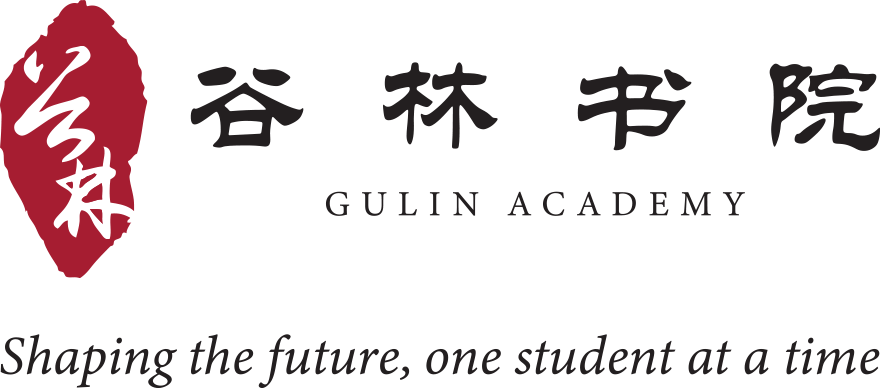人工智能对未来大学专业选择和职业发展的影响
摘要:人工智能(AI)正在深刻改变全球就业市场,尤其是对大学专业选择和职业发展产生了深远影响。AI正快速取代数据录入、交易处理和制造等行业的重复性岗位
,导致会计、金融和工商管理等专业的毕业生面临更高的职业替代风险(International Monetary Fund, 2024)。根据国际货币基金组织的报告,全球约40%的工作岗位可能受到AI的影响,而在发达经济体中,这一比例可能超过60%。例如,预计到2030年,AI驱动的自动化将在金融服务领域取代约30%的入门级岗位(PwC, 2024)。
与此同时,依赖创造力、战略思维和人际沟通能力的领域,如心理学、社会工作和艺术创作等,由于其以人为核心的特质,受到AI影响较小。医疗行业(如护理和医学)也展现出抗AI的能力,主要由于其需要复杂的决策和实际护理操作。根据Pew Research的研究,美国约23%的劳动者从事的岗位较少受到AI威胁,通常集中在对情感智力和手工技能要求较高的领域。
随着AI技术的不断发展,学术机构也在迅速适应这一趋势。《Inside Higher Ed》2023年的调查显示,48%的学生正在重新评估自己的学术路径,越来越多的人选择那些AI风险较低的专业,或者聚焦于AI开发与管理的STEM领域。此外,普华永道(2024)的分析指出,受AI影响较大的行业劳动生产率年均增长5.2%,然而这些岗位的招聘增长率仅为1.8%,显示出市场对于复合型技能的需求日益增强。
因此,随着人工智能逐步重塑传统行业,学生在选择专业和职业路径时,应平衡个人兴趣与就业市场需求,这种审慎的决策将帮助他们更好地适应快速变化的劳动力市场,确保具备足够的竞争力和适应能力。
引言:人工智能(AI)已从一个概念性的构想到变成深刻影响全球经济与行业的颠覆性技术。根据预测,全球人工智能市场在2024年至2030年期间将以36.6%的年复合增长率(CAGR)快速发展,这一增长主要受到机器学习、自然语言处理和计算机视觉等技术进步的推动(Exploding Topics,2024)。人工智能的分类可从能力和功能两个维度来分析,这对理解其潜力和局限性至关重要。
基于能力的分类,人工智能可分为三类:狭义人工智能(ANI)、广义人工智能(AGI)和超人工智能(ASI)。狭义人工智能(或称“弱AI”)专门用于完成特定任务,如Siri和Alexa等虚拟助手,或用于欺诈检测与人脸识别的AI系统(Google AI,2024)。广义人工智能则仍处于理论阶段,旨在模拟并超越人类的认知能力,具备在不同领域独立执行任务的能力,DeepMind与OpenAI等组织正积极推动这一领域的研究(DeepMind,2023)。超人工智能是一个未来设想,预测它将具备远超人类的智能,包括更强的创造力、解决问题能力及自我意识。
从功能维度看,人工智能可分为四种类型:反应型机器、有限记忆AI、心智理论AI和自我意识AI。反应型机器无法存储经验或学习,而有限记忆AI(如自动驾驶汽车)通过利用过去的数据优化决策。心智理论AI正在研发中,旨在理解人类的情感与社会行为。自我意识AI尚处于假设阶段,具备自我意识与反思能力。
随着人工智能的迅猛发展,AI在各行各业的应用已加速推进。2024年,人工智能领域的风险投资已突破900亿美元,体现了市场对AI创新的信心(Barron’s,2024)。英伟达CEO黄仁勋称,AI驱动的机器人技术是一个“万亿级机会”(Financial Times,2024)。预计到2030年,AI将为全球经济贡献高达15.7万亿美元(PwC,2024)。
对于大学生而言,了解人工智能的分类及市场动态至关重要,这不仅帮助他们做出明智的学术和职业选择,还能有效适应AI技术带来的行业变革。随着AI重塑传统职业路径,学生们必须评估不同专业的自动化风险,并将自己的技能与未来行业需求相契合。
人工智能对大学专业和职业趋势的影响:人工智能(AI)正深刻影响社会各领域,大学生在选择学术专业时的偏好也随之发生显著变化。他们日益关注职业的稳定性、自动化的风险以及劳动力市场需求的动态变化。据美国国家教育统计中心(NCES,2024)数据显示,过去五年间,计算机科学和工程类专业的入学人数增长了34%,显示了学生对人工智能技术发展和科技领域职业的浓厚兴趣。相比之下,工商管理和会计类专业的入学人数下降了19%,因为这些领域预计将受到人工智能技术的显著冲击。德勤(Deloitte,2024)的一项报告预测,到2028年,金融分析师47%的工作将被自动化取代。这一趋势促使更多学生选择数据科学等新兴领域,这些学科结合了数据分析能力与人工智能技术,为未来职业发展提供了更大的竞争优势。
与医疗保健相关的专业(如护理和生物医学工程)持续呈现增长趋势,自2020年以来,入学人数已增长22%(American Association of Colleges of Nursing,2024)。这一趋势表明,医疗行业在应对人工智能带来的自动化方面展现出强大适应能力,尤其是这些职业高度依赖同理心、实践技能和复杂的决策能力。此外,社会科学和艺术类专业也展现出一定的稳定性,这些领域的核心在于创造力和人际交往能力,人工智能尚难以有效复制。
这种趋势也延伸到了跨学科课程的快速发展中。越来越多大学开设了诸如人工智能伦理学、人机交互和机器人学等新兴课程,凸显了培养能够应对人工智能伦理问题的专业人才的重要性(Stanford AI Index,2024)。这一变化反映了对复合型技能的日益需求——学生不仅需要掌握技术能力,还需具备沟通、协调等软技能,以在人工智能主导的工作环境中保持竞争力。
同时,人工智能的影响正逐步渗透至课程设计领域。像麻省理工学院和卡内基梅隆大学等领先高校,已将人工智能素养融入其核心课程,确保各学科学生都能建立对人工智能的基本理解。预计到2025年,62%的大学将把人工智能相关课程纳入通识教育的要求(Inside Higher Ed,2024)。这种课程改革不仅反映了教育与科技发展的融合,也体现了对未来人才培养方式的重新定义。
从长远来看,人工智能的发展将深刻改变各行业的职业前景。在会计和审计领域,AI将自动化许多重复性任务,如数据对账、税务准备和风险评估。德勤和普华永道等四大会计师事务所已经开始投资开发AI工具,这些工具比传统会计师更快速地完成审计并识别异常(Forbes,2024)。因此,会计人员的职责将更多转向咨询服务,这需要更强的分析能力和战略洞察力。虽然入门级岗位可能减少,但对能够解读和应用AI生成数据的专业人士需求将显著增加。
在咨询行业,AI驱动的分析将增强客户解决方案的质量,使咨询师能够将精力集中在解决复杂问题的解决和创新战略的制定。常规的市场分析和数据收集将被自动化,而人工智能将在AI伦理、数字化转型和变革管理等领域创造新的机会。初级职位员工需要提升AI应用和解读技能,以维持在行业中的相关性。
在医疗保健行业,人工智能加速了研发进程,推动了药物发明和个性化医疗的发展。AI工具在分析复杂生物数据方面表现出色,使获取更快速且准确的信息成为可能。在临床领域,如放射学和病理学,AI已经协助图像分析、诊断和临床报告,显著提升了效率和准确性。此外,预计人工智能在生物医学工程中的应用将进一步拓展,包括医疗设备开发到患者护理优化技术,这一趋势凸显了跨学科知识和终身学习在医疗保健专业人士的重要性(Forbes,2024;PwC,2024)。
计算机科学将继续处于人工智能发展的前沿,AI专家、数据科学家和软件工程师的需求预计将持续增长。然而,随着技术的精细化,计算机科学领域将进一步细化,出现了如AI治理、算法审计和人机交互设计等新兴方向。随着基础编码任务逐步实现自动化,未来的计算机科学家将主要专注于开发创新的AI模型和管理AI驱动的系统,这种变化要求从业者具备持续学习和适应的能力,应对技术的快速进步。
在投资银行领域,AI的整合预计将显著提升生产力。德勤预测,全球前14大投资银行通过生成式AI讲前台工作效率提升27%-35%。此外,AI在金融建模中的使用帮助揭示隐藏模式和收入驱动因素,同时加速了琐碎任务的完成。AI还强化了预测分析和市场模拟,使得决策更加快速和基于数据。通过分析大量数据,AI能够准确识别市场趋势和消费者行为,帮助投资银行实现更为高效的数据驱动决策。随着AI技术的进一步发展,初级分析师需要培养AI应用和解读技能以保持竞争力(PwC,2024;Deloitte,2024)。
会计行业也面临AI的深刻影响,特别是在审计、审查和信托领域。Moss Adams最近的一项研究表明,69%的会计师认为AI为该行业带来了积极变化,例如提升了工作质量(42%)、数据准确性(41%),并降低了财务成本(31%)。AI在财务报告中的整合正在加速,目前已有72%的公司在这一领域进行试点或应用了AI,预计在未来三年这一比例将达到100%。
在审计领域,AI正彻底改变传统工作流程。预计到2033年,审计市场中的AI技术规模将从2023年的10亿美元增长到117亿美元,年均复合增长率(CAGR)为27.9%。尽管如此,AI的“黑箱”特性仍是一个挑战。美国注册会计师协会报告指出,AI在审计过程中的透明度问题可能会影响人们对其结果的信任(Moss Adams,2024;American Institute of CPAs,2024)。
结论:随着人工智能(AI)持续深刻改变各行业,大学生需要为快速变化的就业市场做好准备。AI在能够通过自动化替代重复性工作的领域(如会计、金融和工商管理)影响最为显著,这将导致入门级职位逐渐减少。然而,技术的变革同时为强调创造力、战略思维和人际交往能力的领域带来了新的发展机会。
AI伦理、数字化转型和人机协作等新兴领域正在迅速崛起,提供了大量结合技术专长、批判性思维和情商的职业选择。虽然部分传统岗位可能被取代,但市场对复合型技能的需求正在增加,即要求个人将AI素养与深厚的专业知识相结合。学生们需积极应对这种转变,优先选择需要复杂判断、决策和解决问题能力的职业,因为这些岗位的不可替代性较高。
因此,未来的就业市场将更加青睐能够在技术创新与行业人性化需求之间实现平衡的专业人才。这样的趋势为个人带来了挑战,同时也提供了成长的机遇。
谷林书院以前瞻性视野帮助学生成长,紧密结合人工智能(AI)的发展趋势,提供定制化的学术规划与职业发展支持。我们帮助学生在兴趣分析和专业选择阶段做好精准规划,确保他们选对专业、少走弯路。通过对行业趋势的深入研究,特别是AI技术带来的变革,我们致力于为学生提供与市场需求高度契合的专业选择和职业技能培养,帮助他们在未来职场中脱颖而出。我们的目标是全面支持学生成长,确保他们具备跨越科技变革和挑战就业市场的竞争力。
The Impact of Artificial Intelligence on Select College Studies / Roles
Abstract: Artificial Intelligence (AI) is reshaping the employment landscape, significantly influencing the relevance and prospects of various college majors. Recent studies highlight that AI is poised to automate tasks in fields such as data entry, transaction processing, and routine manufacturing roles, placing majors like accounting, finance, and business administration at increased risk of job displacement (International Monetary Fund, 2024). According to an IMF report, AI could impact nearly 40% of jobs globally, with advanced economies experiencing even greater exposure rates, sometimes exceeding 60%. In sectors like financial services, AI-driven automation threatens approximately 30% of entry-level positions by 2030 (PwC, 2024). Conversely, majors emphasizing interpersonal skills, creativity, and critical thinking—such as psychology, social work, and the arts—face lower risk due to the human-centric nature of these fields. Healthcare professions, including nursing and medicine, also exhibit resistance to automation due to the necessity for complex decision-making and physical care. A Pew Research study found that 23% of U.S. workers occupy jobs least exposed to AI, predominantly in sectors requiring emotional intelligence and manual dexterity. Academic institutions are responding to these shifts; a survey by Inside Higher Ed (2023) indicated that 48% of students are reconsidering their academic trajectories in light of AI advancements, with increased enrollment in AI-resistant fields and STEM disciplines that focus on AI development and oversight. The labor market is adapting in parallel. Analysis by PwC (2024) reveals that AI-exposed sectors experience labor productivity growth averaging 5.2% annually, while hiring growth in these roles lags at 1.8%, suggesting evolving demands for hybrid skill sets. Ultimately, as AI transforms industries, students must strategically navigate their academic and professional choices, balancing passion with the realities of future job market demands.
Introduction: Artificial Intelligence (AI) has transitioned from a speculative concept to a transformative technological force, influencing industries ranging from healthcare to finance. The global AI market is projected to grow at a compound annual growth rate (CAGR) of 36.6% between 2024 and 2030 (Exploding Topics, 2024), driven by advances in machine learning, natural language processing, and computer vision. AI can be classified by both capability and functionality, which are essential for understanding its potential applications and limitations.
Capability-based classifications delineate AI into three primary categories: Artificial Narrow Intelligence (ANI), Artificial General Intelligence (AGI), and Artificial Superintelligence (ASI). ANI, or weak AI, is designed to execute specific tasks within defined parameters. Examples include virtual assistants like Siri and Alexa, as well as AI systems used in fraud detection and facial recognition (Google AI, 2024). AGI, still theoretical, aspires to replicate human cognitive abilities across diverse tasks and domains, with organizations like DeepMind and OpenAI actively pursuing advancements in this area (DeepMind, 2023). ASI, a speculative concept, envisions intelligence surpassing human capabilities, encompassing superior problem-solving, creativity, and self-awareness.
From a functional perspective, AI systems are categorized as reactive machines, limited memory AI, theory of mind AI, and self-aware AI. Reactive machines operate without memory or the ability to learn from experience, exemplified by IBM’s Deep Blue, which defeated world chess champion Garry Kasparov in 1997. Limited memory AI, such as autonomous vehicles, integrates past data to enhance decision-making processes. Theory of mind AI, still in developmental phases, focuses on understanding human emotions and social interactions. Self-aware AI, which remains hypothetical, would possess consciousness and self-reflection.
As AI technology progresses, its integration across industries continues to accelerate. In 2024, venture capital investments in AI surpassed $90 billion, reflecting increased confidence in AI-driven innovation (Barron’s, 2024). Nvidia CEO Jensen Huang described robotics powered by AI as a “multi trillion-dollar opportunity” (Financial Times, 2024). AI’s expansion is poised to influence global economic growth, with estimates suggesting AI could contribute up to $15.7 trillion to the global economy by 2030 (PwC, 2024).
For college students, understanding these AI classifications and market dynamics is vital for making informed decisions about their academic and professional futures. As AI reshapes traditional career paths, students must weigh the susceptibility of various majors to automation and align their skills with emerging industry demands.
Impact on College Majors and Career Trends: The rising influence of AI is already shifting the preferences of college students as they select their majors, driven by concerns over job security, automation risks, and evolving labor demands. Data from the National Center for Education Statistics (NCES, 2024) reveals that enrollment in computer science and engineering programs has increased by 34% over the past five years, reflecting heightened interest in AI development and technology-related careers. Simultaneously, there has been a 19% decline in enrollment for business administration and accounting majors, fields that AI is predicted to disrupt significantly. A report from Deloitte (2024) projects that 47% of tasks currently performed by financial analysts will be automated by 2028, prompting students to pivot towards areas like data science, which combines analytical skills with AI integration.
Healthcare-related majors, such as nursing and biomedical engineering, are witnessing sustained growth, with enrollment rising by 22% since 2020 (American Association of Colleges of Nursing, 2024). This trend reflects the resilience of healthcare careers to AI automation due to the necessity of human empathy, dexterity, and critical decision-making. Additionally, majors in the social sciences and arts have remained stable, as these fields emphasize creative and interpersonal skills that AI struggles to replicate effectively.
The shift is also evident in emerging interdisciplinary programs. Universities are increasingly offering degrees in AI ethics, human-computer interaction, and robotics, recognizing the demand for professionals who can navigate the ethical implications of AI deployment (Stanford AI Index, 2024). This reflects a broader transition toward hybrid skill sets, where students blend technical proficiency with soft skills to ensure adaptability in AI-driven workplaces.
Moreover, AI’s impact extends beyond major selection to curriculum design. Institutions such as MIT and Carnegie Mellon have integrated AI literacy into core curricula, ensuring that students across disciplines develop a foundational understanding of AI technology. By 2025, 62% of universities are expected to incorporate AI courses into general education requirements (Inside Higher Ed, 2024).
As AI continues to reshape the labor market, college students are becoming increasingly strategic in their academic choices. This shift not only reflects evolving workforce needs but also underscores the importance of aligning educational pathways with future industry trends. Ultimately, while AI may displace certain jobs, it will simultaneously create new opportunities for those equipped with the skills to harness its potential.
Long-term Outlook on Various Roles: The long-term outlook for roles in major industries is closely tied to AI’s evolving capabilities. In accounting and auditing, AI will automate repetitive tasks such as data reconciliation, tax preparation, and risk assessment. Big Four firms like Deloitte and PwC are already investing in AI tools that streamline audits and detect anomalies faster than human accountants (Forbes, 2024). This will shift the focus of accountants towards advisory services, requiring deeper analytical skills and strategic insights. Entry-level roles will decline, but demand for professionals adept at interpreting AI-generated data will rise.
In consulting, AI-driven analytics will enhance client solutions, enabling consultants to focus on complex problem-solving and innovative strategy development. Routine market analysis and data gathering will become automated, but AI will create opportunities in fields like AI ethics, digital transformation, and change management. Junior associates will need to cultivate skills in AI application and interpretation to stay relevant.
In the healthcare industry, AI accelerates research and development by simulating biological processes, thereby expediting drug discovery and personalized medicine. AI-powered tools have been instrumental in analyzing complex biological data, leading to faster and more accurate insights.The integration of AI into healthcare practices has improved patient management and care. Clinical laboratory specialties, including radiology and pathology, have adopted AI to assist in image analysis, diagnosis, and clinical reporting, enhancing diagnostic accuracy and efficiency.AI’s role in biomedical engineering is expected to expand, with applications ranging from developing medical devices to optimizing patient care technologies. This growth emphasizes the importance of interdisciplinary knowledge and continuous learning for professionals in the field.
Computer science will remain at the forefront of AI development, with growing demand for AI specialists, data scientists, and software engineers. However, the field will fragment further, as new specializations such as AI governance, algorithm auditing, and human-AI interaction design emerge. As automation takes over basic coding tasks, future computer scientists will focus on developing innovative AI models and managing AI-driven systems, requiring continuous learning and adaptation.
Investment banking AI integration is projected to significantly boost productivity. Deloitte predicts that the top 14 global investment banks can enhance their front-office productivity by as much as 27%–35% e of generative AI. Additionally, AI adoption in financial modeling enables predictive models that reveal unseen patterns and revenue drivers, accelerating mundane tasks. Furthermore, AI enhances predictive analytics and market simulations, enabling faster, data-driven decision-making. By analyzing vast datasets, AI can identify market trends and consumer behavior, providing deeper insights into market dynamics. This capability allows investment banks to make more informed decisions, improving their competitive edge. As AI continues to evolve, junior analysts will need to cultivate skills in AI application and interpretation to stay relevant.
Accounting is also disrupted by Artificial Intelligence (AI), particularly in audit, assurance and trust. A recent study by Moss Adams found that 69% of accountants believe AI positively impacts the profession, enhancing work quality (42%), data accuracy (41%), and reducing fiscal costs (31%). The integration of AI into financial reporting is accelerating, with 72% of companies currently piloting or using AI in this area. This adoption is expected to reach nearly 100% within the next three years. In the audit sector, AI is revolutionizing traditional processes. The AI in Audit Market is projected to grow from USD 1.0 billion in 2023 to USD 11.7 billion by 2033, reflecting a compound annual growth rate (CAGR) of 27.9%. Despite these advancements, challenges remain. A report by the American Institute of CPAs highlights concerns about the “black box” nature of AI, which can hinder trust in AI-driven audit processes.
Conclusion: As Artificial Intelligence (AI) continues to reshape industries, college students must be prepared for a rapidly evolving job market. AI’s influence will be most pronounced in fields where automation can replace repetitive tasks, such as accounting, finance, and business administration, leading to a reduction in entry-level positions. However, this transformation also creates new opportunities in areas that demand human creativity, strategic thinking, and interpersonal skills. Fields like AI ethics, digital transformation, and human-AI collaboration are expected to grow, offering roles that blend technical expertise with critical thinking and emotional intelligence. While certain jobs may be displaced, the demand for hybrid skill sets—combining AI literacy with domain-specific knowledge—is rising. Students will need to adapt by focusing on roles that require judgment, decision-making, and complex problem-solving, as these are less likely to be automated. The job market will thus favor those who can navigate both technological advancements and the human-centric aspects of their chosen fields.
Gulin Academy is dedicated to empowering students with a forward-thinking vision, aligning closely with the transformative trends of artificial intelligence. We provide personalized academic planning and career development support, guiding students to make informed decisions during the critical stages of interest exploration and major selection. Our goal is to help students choose the right paths early on, minimizing unnecessary detours and maximizing their potential. By conducting in-depth research on industry trends, particularly the profound changes driven by AI, we aim to equip students with skills and knowledge that align seamlessly with market demands. This ensures they are prepared to stand out in competitive job markets and thrive in the rapidly evolving workplace.
At Gulin Academy, we are committed to holistic student development, fostering the adaptability and resilience needed to navigate technological advancements and future-proof their careers.
References (参考文献):
- Frey, C. B., & Osborne, M. A. (2017). “The future of employment: How susceptible are jobs to computerisation?” Technological Forecasting and Social Change, 114, 254-280. IDEAS/REPEC
- Wikipedia. “Automation.”
- Skillsoft. “AI Can’t Replace You at Work. Here’s Why.”
- World Economic Forum. “These are the jobs that AI can’t replace.”
- arXiv preprint arXiv:2312.04180. “AI and Jobs: Has the Inflection Point Arrived? Evidence from an Online Labor Platform.”
- arXiv preprint arXiv:2404.06472. “High-skilled Human Workers in Non-Routine Jobs are Susceptible to AI Automation but Wage Benefits Differ between Occupations.”
- arXiv preprint arXiv:2204.00419. “Artificial Intelligence and Work: A Critical Review of Recent Research from the Social Sciences.”
- arXiv preprint arXiv:2304.09823. “The Future of ChatGPT-enabled Labor Market: A Preliminary Study in China.”
- Harvard Graduate School of Education. “AI Won’t Take Your Job if You Know About IA.”
- University of Massachusetts Lowell. “Will AI Replace You at Work?”
- Marquette Today. “Perspectives in Artificial Intelligence: Creating jobs, not replacing them.”
- PubMed Central. “Human Augmentation, Not Replacement: A Research Agenda for AI.”
- Taylor & Francis Online. “Artificial Intelligence and the Role of Researchers: Can It Replace Us?”
- Reuters. “So Meta. AI-written Paper Says AI is the Future of Legal Scholarship.
- The Atlantic. “AI Is a Language Microwave.
- The Atlantic. “ChatGPT Doesn’t Have to Ruin College.”
- MIT Sloan Management Review. “AI and the Future of Work.”
- Brookings Institution. “The Impact of Artificial Intelligence on Employment.”
- Forbes. “Artificial Intelligence and Its Impact on Jobs.”


